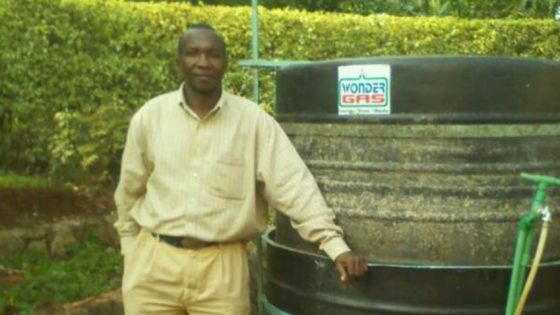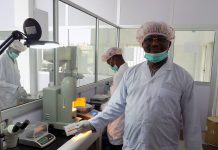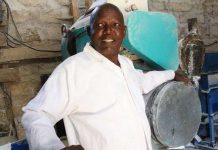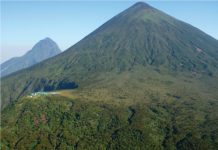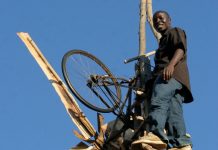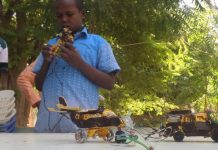(A column highlighting scientific, technological, engineering, and design innovation in Africa)
Daniel Gitau Thairu, coordinator at Wonder Innovations (Kenya) which specializes in portable compact biogas systems using non-conventional feedstock for biogas production, developed a domestic waste biogas system that utilizes any material capable of decomposing to produce energy.
Biogas refers to the gases produced when organic matter breaks down in the absence of oxygen. Because biogas exerts a very small carbon footprint, advocates of sustainable energy promote it as a viable alternative to fossil fuels.
Traditional biogas digesters, as such systems are called, rely on animal dung for feedstock. Not only do they address the issue of farm waste disposal, but they also are relatively low-cost, efficient and easy to maintain, providing clean energy for 15 years or more in some instances.
For his innovation, Thairu altered the fermentation process and expanded its efficacy to any material that can decompose, such as dirty water, leftover food, spoiled grain, and vegetable and fruit peelings, making biogas energy available even to households that do not have access to animals or that cannot afford to keep them.
At the same time, the innovation contributes to the control of human waste, which is a major public health challenge in Africa.
Thairu is a graduate of the Railway Training Institute in Nairobi, Kenya, and previously worked as an electrician at Kenya Railways. In an exclusive email interview with AfricaStrictlyBusiness.com, he said he started research for his domestic waste biogas digester in 2003 and wrote a proposal to the National Commission of Science Technology and Innovation, which gave him a grant to facilitate production of a prototype.
He started doing commercial projects in July 2013 and in May 2014 he was selected as one of the 10 finalists in the Innovation Prize of Africa event held in Abuja, Nigeria.
“The uniqueness of the product has attracted a lot of interest both locally and internationally,” Thairu said in his email. “I am looking for investors. I have done 12 plants in Kenya and am working on the thirteenth.”


